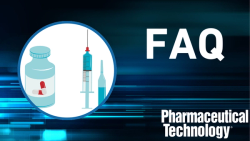
OR WAIT null SECS
Pharmaco-Kinesis Corporation Develops First Nanodrug Combination for Glioma
Pharmaco-Kinesis Corporation (PKC) announced that it is developing the first nanodrug combination of Merck's temozolomide and Celgene's thalidomide (in a 50:50 ratio) for the treatment of gliomas and other cancers. PKC will collaborate with the University of California, San Diego's department of nano-engineering at the Moores cancer centre to develop the nanodroplet formulation.
Pharmaco-Kinesis Corporation (PKC) announced that it is developing the first nanodrug combination of Merck’s temozolomide and Celgene’s thalidomide (in a 50:50 ratio) for the treatment of gliomas and other cancers. PKC will collaborate with the University of California, San Diego’s department of nano-engineering at the Moores cancer centre to develop the nanodroplet formulation.
According to PKC, 2000 to 20000 molecules of each type of drug can be packaged in one nanodroplet. Preliminary studies have indicated that the ratio of these different drugs can be precisely controlled. PKC’s goal is to produce nanodroplets that have special affinities for cancer cells with enhanced efficacy in destroying such cells compared with conventional chemotherapy.
PKC has begun in vivo testing of the temozolomide–thalidomide nanodroplets. Preliminary findings show that the combination is significantly more effective than the current commercially available formulations of these drugs that are being used in the clinic.
It is thought that direct local delivery is necessary to achieve the potentially high efficacy of the nanodrugs. PKC is developing a microminiaturized metronomic biofeedback pump nano (MBPn) version, a fully implantable infusion pump that enables programmable, metronomic, local delivery and sampling via a multichannel catheter that has the potential to avoid elimination by the liver. The company hopes that the MBPn will enhance anticancer activity of the drugs at the target site while reducing adverse effects on healthy cells.
"We are conducting ongoing development and testing in order to prove the efficacy of delivering proprietary nanodroplet formulations of anticancer medications using our MBP," said Frank Adell, CEO of PKC in a press statement. "If these tests are successful, we believe PKC will produce a major advance in treating gliomas and potentially other types of cancer as well."


